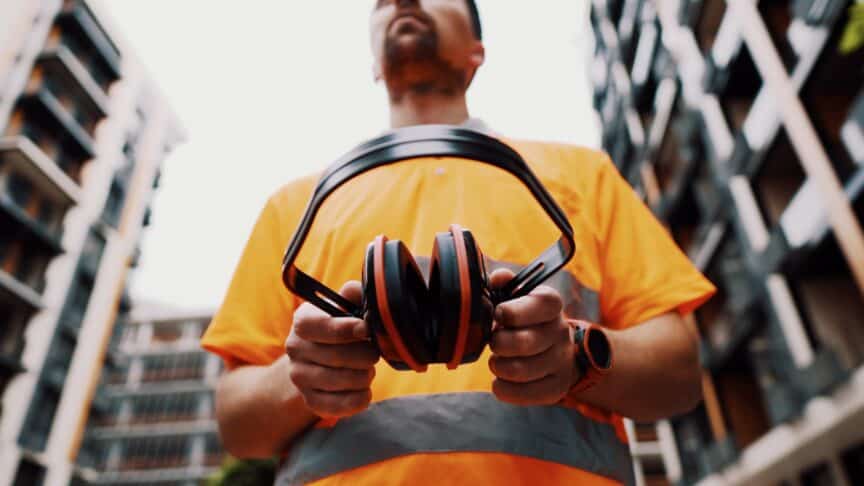- Navigating Concerts When Wearing Hearing Aids - April 28, 2024
- How to Care for Infants With Hearing Loss - April 15, 2024
- Hearing Aid Tips for Runners - April 5, 2024
As hearing professionals, our mission extends beyond addressing hearing impairments; it encompasses the proactive preservation of auditory well-being. The adage “prevention is better than cure” rings particularly true when it comes to hearing health. In this article, we delve into the daily maintenance practices that can significantly contribute to protecting your hearing, incorporating the latest advancements in hearing loss prevention, diagnosis, and management.
Understanding the Soundscape: A Holistic Approach
Before delving into the specifics of daily maintenance, it is crucial to comprehend the complex auditory landscape we navigate daily. Our ears are intricate instruments, susceptible to damage from both prolonged exposure to loud noises and more insidious sources of harm. Recent research underscores the importance of a holistic approach to hearing health, considering both environmental and genetic factors.
Daily Maintenance Practices: A Sound Investment
Volume Control in the Digital Age:
With the ubiquity of personal audio devices, the risk of overexposure to loud sounds has surged. A key daily maintenance practice is to regulate the volume on these devices. The World Health Organization recommends a maximum volume of 60% for a duration of 60 minutes to mitigate the risk of noise-induced hearing loss. Encourage patients to invest in noise-canceling headphones, which can reduce the need for high volumes in noisy environments.
Ear Protection in Noisy Environments:
Occupational and recreational noise exposure remains a leading cause of preventable hearing loss. Whether in a bustling workplace or at a concert, using ear protection is imperative. Disposable foam earplugs, custom-molded musician’s earplugs, and earmuffs provide effective solutions tailored to different scenarios.
A Balanced Diet for Auditory Health:
Emerging research suggests a link between nutrition and hearing health. A diet rich in antioxidants, omega-3 fatty acids, and vitamins A, C, and E may contribute to the prevention of age-related hearing loss. Encourage patients to include a variety of fruits, vegetables, and fish in their daily meals.
Advancements in Diagnosis and Management: A New Wave of Precision
Early Detection through Advanced Screening:
Early detection of hearing issues is paramount to effective intervention. Innovations in hearing screening technologies now allow for more accessible and accurate assessments. Audiometric apps, when used under professional guidance, provide an initial screening tool that can be a catalyst for further diagnostic examinations.
Personalized Hearing Solutions:
The one-size-fits-all approach to hearing aids is evolving. Cutting-edge technology now enables the customization of hearing aids based on individual preferences and needs. Artificial intelligence algorithms, for instance, can adjust settings in real-time, optimizing the listening experience in various environments.
Teleaudiology: Bridging Gaps for Accessible Healthcare:
The landscape of healthcare delivery is undergoing a transformation, and audiology is no exception. Teleaudiology, facilitated by advancements in telecommunication and remote monitoring technologies, allows professionals to reach patients in remote locations. This not only ensures broader access to diagnostic services but also facilitates ongoing care and adjustments to hearing devices.
Futuristic Interventions: Beyond the Horizon
Gene Therapies for Inherited Hearing Loss:
The future holds promise for gene therapies targeting specific genetic mutations responsible for inherited hearing loss. Researchers are exploring the possibility of correcting these mutations at the genetic level, offering a potential cure for certain types of congenital hearing impairments.
Neuroplasticity and Cognitive Training:
Understanding the intricate connection between hearing loss and cognitive decline has opened avenues for innovative interventions. Cognitive training exercises, combined with auditory rehabilitation, harness the brain’s neuroplasticity to enhance auditory processing and mitigate the impact of hearing loss on cognitive function.
The Compassion of Early Detection: A Call to Action
Amidst the technological marvels and futuristic aspirations, the human element remains paramount. The earlier a hearing issue is detected, the more effectively it can be managed. Beyond the clinical setting, emphasize the importance of self-awareness. Encourage individuals to undergo regular hearing check-ups, especially if they notice any changes in their hearing abilities.
As hearing professionals, our role extends beyond corrective measures; it encompasses empowering individuals to actively engage in their auditory well-being. By incorporating these daily maintenance practices, staying abreast of technological advancements, and fostering a compassionate approach to early detection, we pave the way for a future where hearing health is not just preserved but optimized for a life filled with the richness of sound.

